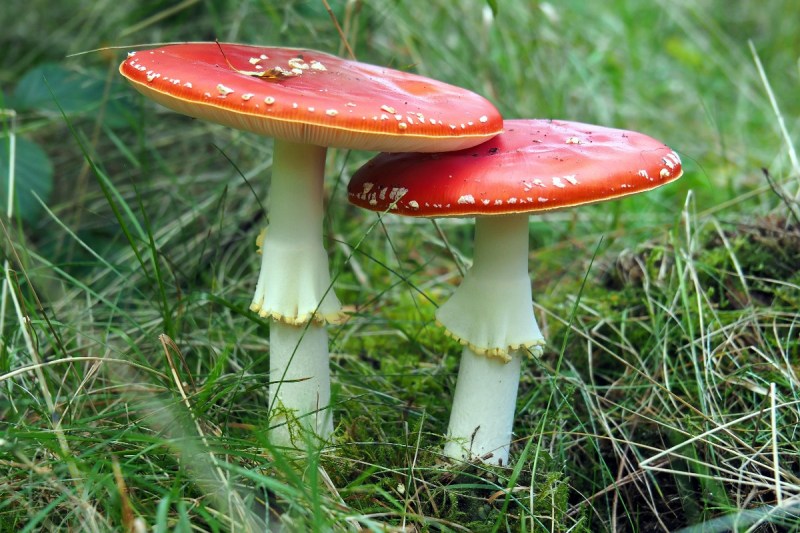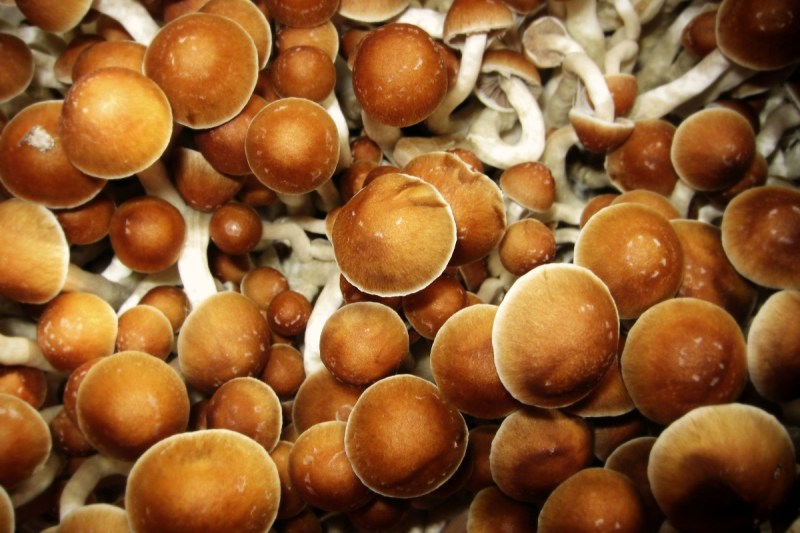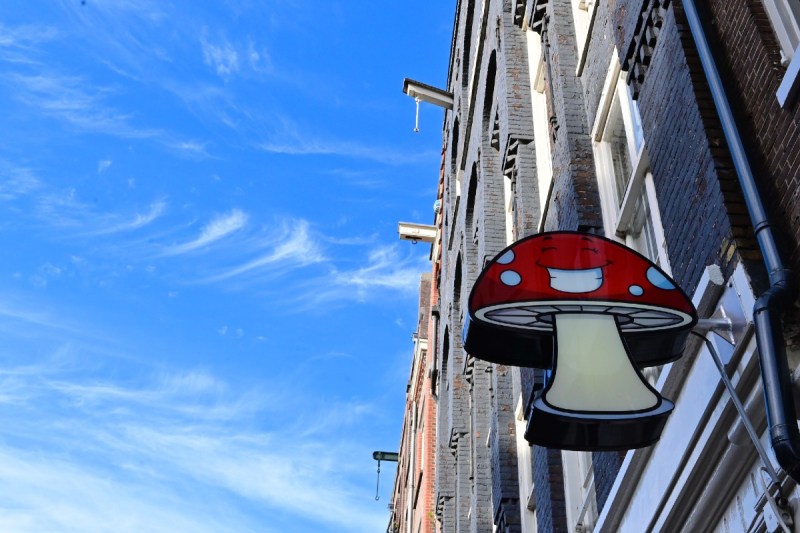In recent years, “psilocybin” has emerged as one of the key buzzwords among the therapeutic community as the benefits of psychedelic therapy have gained traction. For several decades, so-called magic mushrooms were criminalized and dismissed as hippie fodder. Now, psilocybin mushrooms have been cast in a new light as research has increasingly revealed their benefits. Today, you hear them being discussed on everything from Netflix specials to morning talk shows.
Contents
- What are psilocybin mushrooms?
- What are the benefits of mushrooms?
- What is the “magic mushroom” experience like?
- Tips for making the most of your experience
The thing is, a lot of people have only the most fleeting understanding of what, precisely, psychedelic mushrooms are. Or perhaps they’ve heard all about their therapeutic potential but they’re not sure what the experience itself is all about.
Recommended Videos
Not me, though. Having taken psilocybin mushrooms hundreds of times, I’m among the most well-versed people on the planet. Over the past 25 years, I have consumed them under all manner of circ*mstances and have become an expert at cultivating and navigating them. So equipped with this knowledge — plus with a little help from the renowned mycologist Paul Stamets — I’ll give you a look at the strange experience offered by psychedelic mushrooms.

What are psilocybin mushrooms?
Psilocybin is a psychedelic compound that occurs naturally in countless species of fungi. While they grow in the wild and all varieties of them have been wielded by indigenous cultures for thousands of years, the most common cultivated species are cubensis, cyanescens, semilanceata, and azurescens, all of which are typically available in a wide range of strains. Different varieties deliver different potencies and are marked by different experiences, though the overall effects are generally comparable.
The legal status of psilocybin varies around the globe, but in the United States, it is illegal on a federal level. That is changing, however, as the state of Oregon and many cities across the country have begun to decriminalize the use and possession of these weird mushrooms. Recently, psilocybin was given “Breakthrough Therapy” status by the FDA, which granted more leeway for legal research on the compound and opened a likely pathway to legalization in some form.

What are the benefits of mushrooms?
While prohibition pushed research on psychedelics underground for decades, recently there has been a boom of studies performed at reputable institutions around the globe and across the U.S., from Johns Hopkins in the eastern U.S. to the University of California in the west. The results of all this research have been conclusive: Psilocybin can have a profound impact on conditions like depression, anxiety, PTSD, OCD, addiction, and end-of-life distress.
The benefits of mushroom therapy have been well-documented to the point where they don’t bear an in-depth description here. To learn more about the specific therapeutic benefits, you should check out our guide to psilocybin therapy. Suffice to say that they are a game-changer when it comes to treating conditions like those listed above.
Less discussed is how psychedelic mushrooms can not only ease mental illness but also improve mental wellness.
I recently spoke with the famed mycologist and psychedelics advocate Paul Stamets, who declared, “It’s a worldwide revolution right now happening with mushrooms. This is becoming the zeitgeist of our time — this awakening to this hidden kingdom that has been largely ignored. The research on psilocybin is so extraordinarily positive, and rapidly opening are pathways for it being approved as a medicine for not only treating psychological conditions related to distress — PTSD, depression — but also increasing intelligence. We have definitive proof now that psilocybin increases neuro regeneration; that it increases synaptic junctions.”
Stamets also explained how psilocybin mushrooms affect personal wellness and even attitudes.
“Psilocybin mushrooms make for nicer, more tolerant people. Psilocybin mushrooms build creativity. People who are more creative come up with more solutions. I’m increasingly wanting people to look at improving wellness for the well. You don’t have to be sick to benefit from psychedelics or psilocybin use. Many people can have profound experiences under it.”
To expand access to the wide-ranging benefits of mushrooms — both psychedelic and non — Stamets has been compiling a list of studies at MushroomReferences.com.

What is the “magic mushroom” experience like?
So what exactly are these “profound experiences” so many are advocating, including Stamets and even me? The only way to know is to try it firsthand, but to get the most out of it, you should have some understanding of what to expect.
You can ingest mushrooms whole, in a tea, or in a capsule — and we’re talking a full dosage of approximately 2–4 grams. Start low and work your way up; you can always take more, but you can’t untake too much. After that, it will take anywhere from 30–60 minutes before you feel the effects. Then you may begin to feel somewhat lightheaded, and the world around you may appear in increasingly high contrast. You may feel nausea, but persevere — it will pass.
As the effects build in earnest, you may begin to see typically inanimate objects move. Patterns might shift and ripple. The walls might appear to be breathing. Normally immobile plants might begin to seem a lot more lively. You may begin to laugh freely at seemingly ordinary things. Unless you take an extremely large dose, you’ll rarely experience the full-blown hallucinations more common with other psychedelics.
You might begin to feel somewhat overwhelmed. This is extremely common during the come-up towards what is known as the “peak.” People frequently report feeling as if their ego is crumbling away. They begin to have thought patterns that are so unusual that it can become frightening. Again, this is very common. You’re undergoing a profound transformation. Persevere.
If you’ve taken a strong enough dosage, the aforementioned peak can and likely will be life-changing. That’s not just my opinion; research shows that two-thirds of those who take psilocybin mushrooms consider it among the most important experiences of their lives. You may transcend your ego and physical body and experience a universal connection that is beyond words, often referred to as “non-duality” by mystics. This can be accompanied by a profound sense of well-being, and it frequently gives rise to what can simply be described as the deep secrets of existence.
It sounds crazy, but it isn’t. If you know, you know.
After the peak, you’ll typically spend two to four hours coming down. For many, this is the most enjoyable part of the whole experience. Everything seems absurdly hilarious, and sad, and wonderful, and important, and insignificant, all at once.
Then, almost catching you by surprise, it’s over. You feel more “yourself” and in your body again. Your ego is back, but you’re now equipped with wisdom that you did not have before. If your ego was a too-tight turtleneck that was gently strangling you previously, now it’s a bit looser, a bit more comfortable.

Tips for making the most of your experience
One of the main reasons people avoid psychedelics is because they’re worried about the much-maligned “bad trip.” I’ve provided a more in-depth explanation of bad trips and how to ward them off here, but for our purposes for now, here are a few things you can do to make the experience more enjoyable and get the most out of it in general:
- Only take mushrooms in a setting where you have legal, physical, and emotional safety.
- Only take them in the company of supportive companions, like a trained guide or therapist, or friends who bring positivity to the experience.
- While you may be taking psilocybin to address a negative mental condition, avoid taking them when actively experiencing an acute mental crisis. The calmer you are, the better.
- Meditation, yoga, and other reflective practices can be good precursors to help put you in the right mindset.
- Have items and other materials on-hand to help support your mental and physical wellness, such as art, music, flowers, spiritual tokens, fruit, bread, or other simple, healthy foods.
- Natural settings are great, but it’s also advisable to have an indoor space available.
Beyond that, be open to whatever may arise. If you feel like laughing, laugh. If the need to cry arises, cry. Feel what you’re feeling and embrace it. There’s something to be learned through every phase of the experience.
Editors' Recommendations
- NYT Connections hints and answers for June 26, 2024
- What we know about Suits L.A., the spinoff of everyone’s favorite streaming binge
- The best shows like Masters of the Air you can watch right now
- Love Dune 2? The best Denis Villeneuve movies, ranked
- What do cigars taste like? Dissecting a flavorful experience